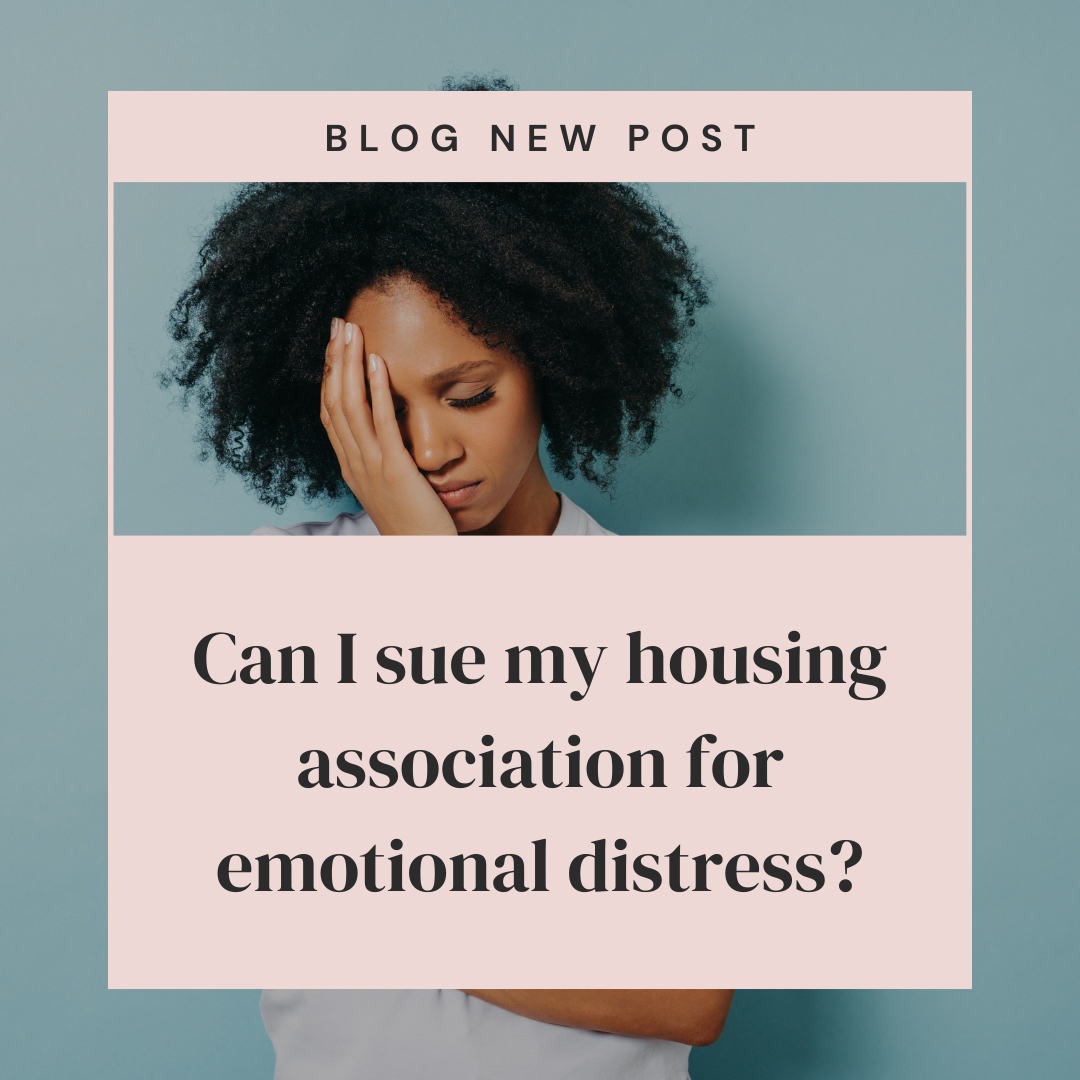Can I sue my housing association for emotional distress?
Can I sue my housing association for emotional distress? If you’re a social housing tenant in England or Wales facing significant emotional distress due to the actions or negligence of your housing association, you might wonder about your legal options. Emotional distress resulting from inadequate living conditions, unresolved issues with repairs, or other housing-related concerns can be incredibly challenging. So, can you sue your housing association for emotional distress? Let’s delve deeper into this issue.
Understanding Emotional Distress in Housing Associations
Emotional distress can arise from various factors within a tenancy, such as prolonged unresolved repairs, lack of maintenance, or improper handling of tenant complaints. As a tenant, you have rights protected by housing laws in England and Wales that dictate the responsibilities of housing associations. These obligations typically include providing habitable living conditions and promptly addressing repair issues.
Legal Grounds for Suing for Emotional Distress
Suing a housing association for emotional distress involves complex legal considerations. To pursue legal action, you must establish a clear link between the housing association’s actions or negligence and the emotional distress you’ve experienced. Proving emotional distress in court requires substantial evidence, including documentation of complaints, records of communication, and potentially expert testimony.
Challenges and Considerations
It’s important to note that emotional distress claims against housing associations can be challenging. Courts often require substantial evidence to demonstrate the severity and impact of emotional distress. Additionally, housing associations might argue that they’ve taken reasonable steps to address issues, making it crucial for tenants to document complaints and the association’s responses.
Legal Remedies and Alternatives
While suing for emotional distress is an option, there are alternative routes to address housing issues. Engaging with support groups, seeking advice from housing advocates, or escalating complaints within the housing association might help resolve the situation without resorting to legal action. Additionally, reporting severe housing issues to local housing authorities can prompt investigations and potential interventions.
Conclusion
In conclusion, suing a housing association for emotional distress as a social housing tenant in England or Wales is a complex process. While it’s possible under certain circumstances, it requires substantial evidence and legal support. Exploring alternative routes, such as escalating complaints or seeking assistance from housing advocates, might offer more immediate solutions.
Remember, understanding your rights as a tenant and keeping thorough documentation of housing-related issues is crucial. If you’re considering legal action, seeking legal advice from professionals experienced in housing law can provide clarity on your options and the viability of your case.
Emotional distress caused by housing-related issues is a serious matter, and tenants have the right to live in safe and habitable conditions. Whether through legal action or alternative approaches, advocating for your rights as a tenant is essential for ensuring fair and adequate housing standards.
Important links
Housing Disrepair Advice: https://housingdisrepairadvice.org/contact
Housing Ombudsman: https://www.housing-ombudsman.org.uk/
